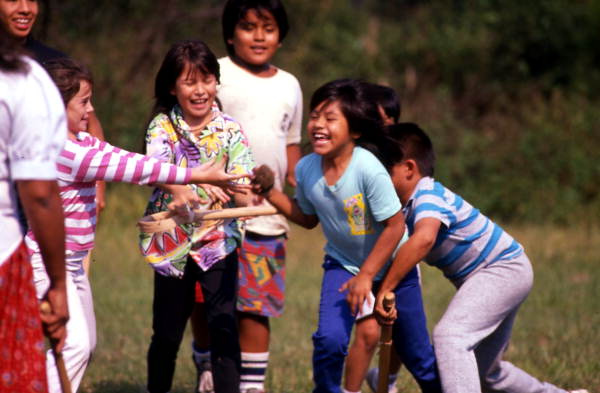A recent report from the state of Minnesota shows nearly half of Minnesota Counties that border reservations are not protecting federal rights of vulnerable Native children and their families. Reporter Melissa Townsend has the story.
The Indian Child Welfare Act or ICWA, passed in 1978, and the Minnesota Indian Family Preservation Act or MIFPA, passed in1985. Both laws were a response to the long, racist and traumatic history of the US and state governments forcibly removing Native children from their homes. Breaking up Native families has left deep generational wounds.
Priscilla Day, Leech Lake Ojibwe, is Professor at University of Minnesota in Duluth Department of Social Work where she trains social workers. She says that destructive practice continues today with out-of-home placements in foster care and adoption.
“We know kids who are in out-of-home care, they’re much more likely to end up doing high-risk behaviors, they’re more likely to end up in the juvenile justice system and eventually in the criminal justice system. They end up in the cycle where their children end up being removed,” Says Priscilla Day.
ICWA and MIFPA require social workers to first find out if a child is a descendent of a federally recognized tribe. Then the laws require that social workers make every effort to keep that child with extended family or in the tribal community while ACTIVE efforts are made to help that family get healthy and stay together.
But a recent report from the state of Minnesota says that is not happening. One third of all Minnesota counties have not followed the laws. That includes nearly half the counties that border tribal reservations. Priscilla Day says it’s partly because of the mindset of many social workers in these counties.
Priscilla Day says “And this is true across the country, child welfare has become system that really revolves rescuing children from their bad families. And it’s structured to remove children.”
She says that say of thinking is hard to shift.
“You know, it’s hard to break that and, and really switch and say, how can we support these families so that they’re able to parent safely.”
Nikki Farago is with Assistant Commissioner in the state agency that oversees the counties making out-of-home placements. She is a descendent of the Seneca Nation. She says in her experience, some case workers think the laws are optional and others don’t know how to follow them. And there is racism at play.
“Implicit bias is absolutely at play or explicit bias. It’s the reason that the Indian child welfare act was passed in the first place. And here we are 42 years later and we still have the highest removal rate of Native children in the country. It’s simply unacceptable,” says Nikki Farago.
Now for the first time, those non-compliant counties will be financially penalized. In 2021, those counties will receive half of their previous levels of state funding for out-of-home placement services. Nikki Farago with the Minnesota Department of Human Services says, this is a financial incentive to follow the law.
Nikki Farago says, “I haven’t seen focused attention on ICWA compliance until now. So the funding source clearly has been a motivating factor for counties. I also think there are many people within counties who welcome this opportunity to have this focus.”
Farago says her priority is to offer good training for county social workers.
“What we can get at with training is increased understanding at the outset and better practices at the outset before we see a need for corrective action,” according to Nikki Farago.
This past January Priscilla Day and her UMD Colleague Jeri Jasken, White Earth Ojibwe, began offering a 20-hour training on ICWA and MIFPA for social workers new to the field. Day says it’s like a light bulb comes on for them.
“We hear that every training that we do, they’re like, “I wish I, would’ve known this earlier. I’m gonna do things differently from now on.” And that’s the whole purpose of training,” says Priscilla Day.
Day and Jasken would like to expand this training to all social workers.
“We’re hoping to be able to get fully funded because all workers need training,” says Priscilla Day.
The cuts in funding to non-compliant counties create a surplus of 660-thousand dollars in state money. Right now that money is slated to go into the state’s general fund. The state legislature would need to act to divert the money toward training to help county social workers follow the law and help Native families heal and stay together.


 CDC Survey Teams Pulled After Multiple Incidents
CDC Survey Teams Pulled After Multiple Incidents